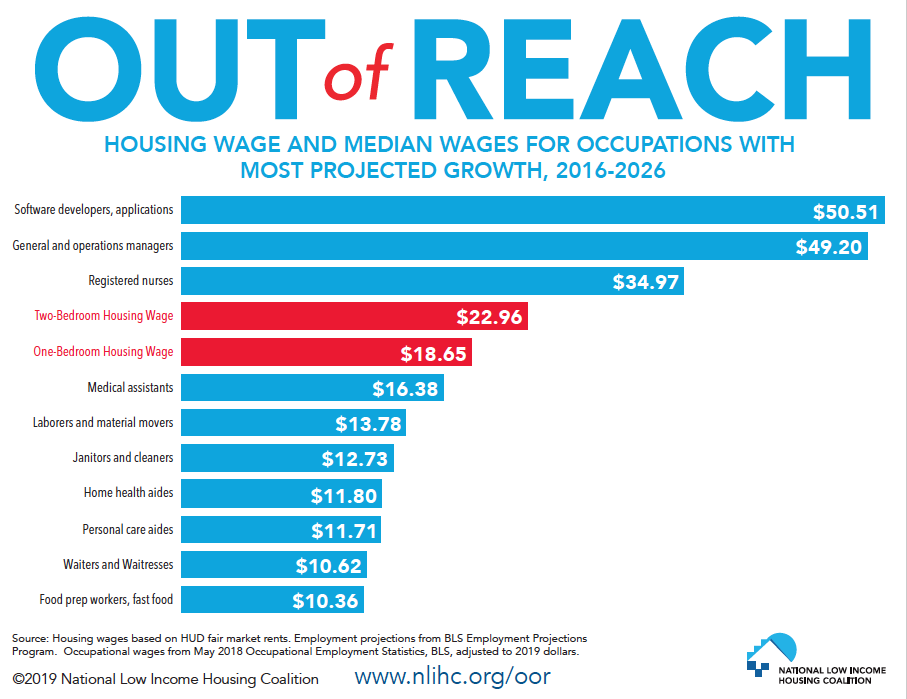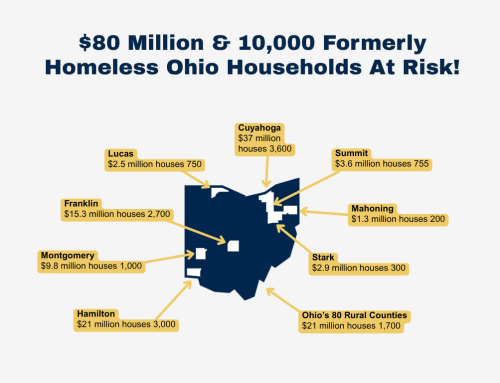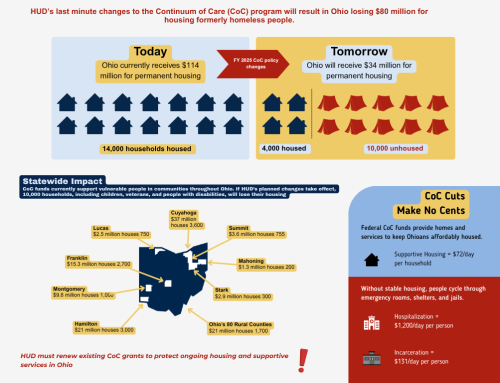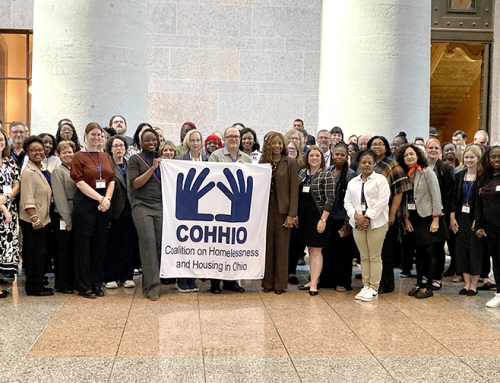Only three out of the 10 most common jobs in Ohio actually pay employees enough to afford a modest two-bedroom apartment, according to a report released Tuesday.
Ohio’s Housing Wage increased again this year to $15.73 – the hourly amount renters need to earn to afford the rent for a basic, two-bedroom unit, according to a report jointly issued by the National Low Income Housing Coalition and the Coalition on Homelessness and Housing in Ohio.
Of the 10 occupations in Ohio with the most employees, only registered nurses earn considerably more than the two-bedroom housing wage, with a median wage of $30.87/hour. Median wages for office clerks and customer service representatives are just barely higher than the housing wage at $15.74/hour and $16.18/hour respectively.
“We hear a lot about how great the economy is these days, but it’s not so great for the hundreds of thousands of low-wage Ohioans who are struggling to keep their families stably housed,” said COHHIO Executive Director Bill Faith. “The high rent–low wage gap explains why we’re seeing more and more children and families showing up at homeless shelters.”
With nearly 400,000 households now spending over half their income on rent, 70,000 Ohioans experienced homelessness in a single year, according to data from the Ohio Housing Finance Agency. That includes 21,000 children and 3,000 infants under age one – a population that has increased 53 percent in five years.
Faith said state lawmakers are currently considering a proposal that would reduce children’s homelessness and expand access to housing for Ohio’s low-wage employees and their families. COHHIO is asking the Ohio Senate to include an amendment in the state budget to increase the Ohio Housing Trust Fund fee to generate more funding for local homeless and affordable housing programs.
“The Housing Trust Fund has a great track record, but revenues are down and the fee hasn’t changed since 2003,” he said. “Having a safe, decent, affordable place to live is essential children to grow up healthy and do well in school, and for their parents to recover, stay employed and hopefully find a better job that actually pays the rent.”
Every year the Out of Reach report updates the Housing Wage, an estimate of the full-time hourly wage that a household must earn to afford a basic apartment at fair market rent without spending more than 30 percent of income – the official standard for housing affordability. In addition to the statewide average, the report includes data for each county and metropolitan area.
The typical renter in Ohio earns $13.92/hour, nearly $2 less than the hourly wage needed to afford a modest two-bedroom rental unit. Workers earning minimum wage of $8.55/hour would have to work 74 hours per week year-round to afford a two-bedroom apartment.
Diane Yentel, president and CEO of the National Low Income Housing Coalition, said many low-wage jobs like personal care aides and home health aides are projected to experience the greatest growth over the next decade, but employees generally don’t earn enough to afford a one-bedroom apartment at fair market rent.
“Our rental housing needs have worsened considerably over the past 30 years. Housing is out of reach for millions of low-wage workers,” she said. “But members of Congress are starting to take note. Big, robust housing bills have been introduced by key policymakers. The topic of affordable housing is becoming increasingly prevalent on the 2020 presidential campaign trails. We now have a tremendous opportunity to implement bold federal housing policy solutions that will fund affordable housing programs at the scale necessary.”
COHHIO is calling on Ohio’s congressional delegation to support fiscal year 2020 spending bills that recently cleared the U.S. House Appropriations Committee. The Transportation, Housing and Urban Development appropriations bill would boost federal investment in housing and homeless programs by $5.9 billion over current spending levels.
For additional information:
- NLIHC Out of Reach page
- Not Making Enough to Pay Rent? Ohio’s Most Common Occupations Usually Don’t, Report Shows – Plain Dealer/Cleveland.com, June 18, 2019
- Low Wage Workers Struggle to Make Ends Meet – Columbus Dispatch, June 14, 2019








